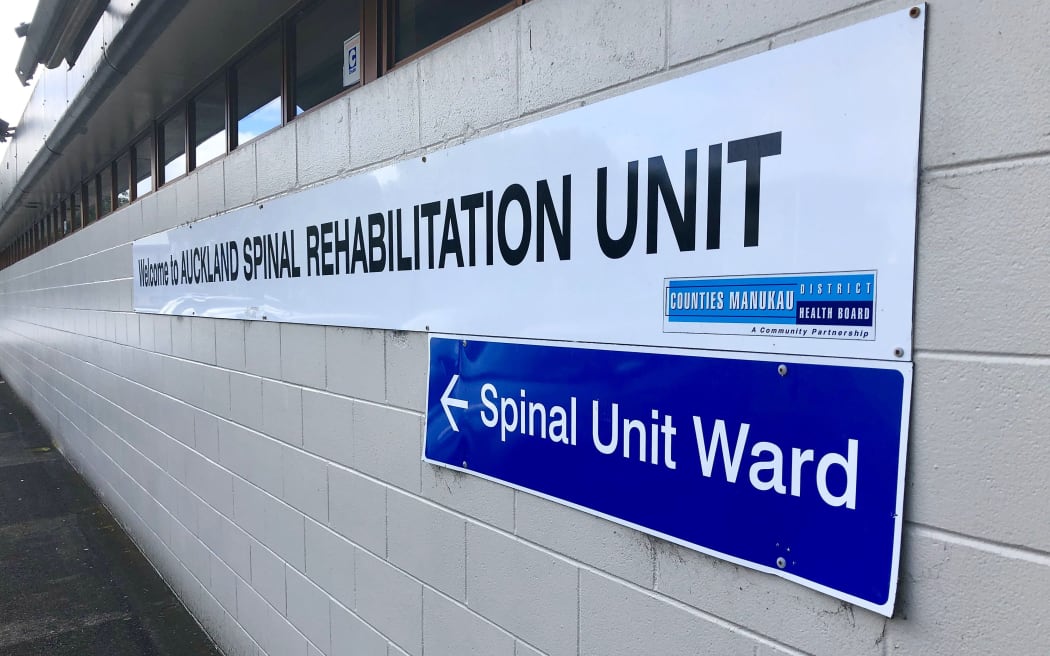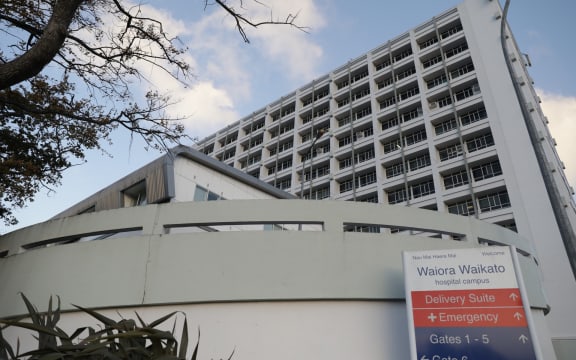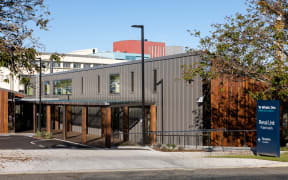
Photo: LDR
Construction of a new facility in Auckland's Ōtara for treating spinal injuries has been deferred due to health project costs rising.
Documents show the latest cost forecast spiralling from $110 million on its announcement in 2021, to $185m - up 70 percent.
Te Whatu Ora faces $300m in cost escalations across scores of building projects. It has won ministerial approval to delay Ōtara's construction to help it cope.
It had reprioritised where the construction spending would go based on equity and "risks to service delivery", a cost pressures document in April said, released under the Official Information Act (OIA) to RNZ.
As well as "deferral of the Ōtara Spinal Unit and Adult Rehabilitation Unit project" - one of only two spinal units in the country - the other way to redirect money was to reconsider the scale and timing of projects in the 2022 Budget, it said.
Most of the costs, and many of the projects, in the document are blanked out so it was unclear what was being reconsidered.
"On 20 March 2023, joint ministers approved the Cost Escalation Strategy, and approved [BLANK] in capital funding for in-flight projects experiencing cost increases. These projects were prioritised based on clinical risk, and urgency of decision making."
Cost escalations were ramping up from the Taranaki Cancer Centre, the Lakes mental health upgrade and one other blanked-out project.
At Taranaki, previous "poor levels of planning" had failed to anticipate the costs of asbestos management, geotechnical factors and "cultural elements".
"These aspects of planning are not unique to this project, and Te Whatu Ora is developing guidelines to identify them earlier in project planning.
"However, for legacy projects, they require management through cost escalation funding," the documents said.
Te Whatu Ora told RNZ on Tuesday the 60-bed Ōtara design should be finished in June next year, at which point the cost would become clearer. The business case was approved in April 2022.
Nearby, the cost of the Manukau Health Park upgrade put at $211m three years ago has risen by more than $100m, and was on track to be open in late 2025, it said.
"The construction of the Specialist Rehabilitation Centre on the campus is a separate project and will not impede the rest of the Manukau Health Park becoming operational."
At Waikato Hospital, money had actually been saved, with $4.4m underspent on quake-strengthening the Waiora building.

Waikato Hospital. Photo: RNZ / Simon Rogers
One option was to spend that on trying to get the building up to 50 percent of New Building Standard (NBS) from its current 34 percent. Instead, the $4.4m would be returned to the general construction pot.
An earlier NBS estimate was even lower, and forecast costs consequently higher, but "the proposed works were no longer necessary, resulting in the underspend", Te Whatu Ora said.
An air conditioning plant on the roof was the weak point and limited the NBS to 34 percent, which is on the cusp between the categories of earthquake-prone (1-33 percent) and earthquake-risk (34-67 percent).
"A rating of less than 34 percent ... does not mean the building is dangerous or poses an imminent risk and, from an engineering risk perspective, can continue to be occupied," director of property and infrastructure for Waikato, Stephen Greenhough, said.





